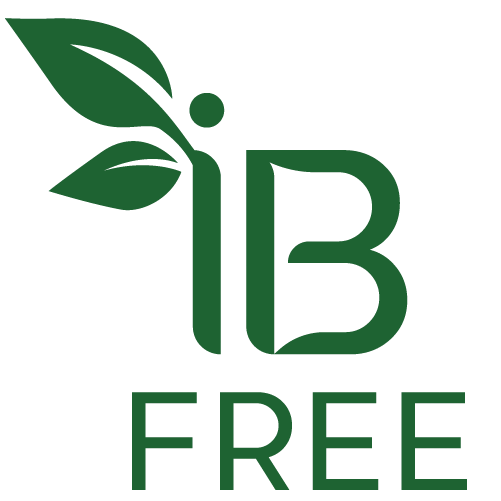Comprehensive IBS Treatment Options: Natural, Over-the-Counter, and Prescription Remedies
Irritable Bowel Syndrome (IBS) is a common gastrointestinal disorder causing symptoms like abdominal pain, bloating, diarrhea, and constipation. While the exact cause of IBS remains unclear, several treatments help manage symptoms effectively. IBS treatments typically fall into three categories: natural supplements, over-the-counter (OTC) treatments, and prescription medications. This article explores each category, including common treatments and their potential side effects.
1. Natural Supplements for IBS
Natural supplements can alleviate IBS symptoms by supporting gut health and reducing inflammation or discomfort. Many people prefer these options due to fewer side effects compared to pharmaceutical treatments.
Peppermint Oil
Uses: Soothes abdominal pain, bloating, and discomfort by relaxing gut muscles.
Side Effects: Heartburn, anal burning, interactions with certain medications.
Probiotics
Uses: Restores gut microbiota balance, particularly beneficial for IBS-D (diarrhea-predominant).
Side Effects: Mild gas and bloating initially.
Fiber Supplements (Psyllium Husk)
Uses: Softens stools and promotes bowel regularity, mainly for IBS-C (constipation-predominant).
Side Effects: Gas, bloating, cramps; not recommended for IBS-D as it may worsen diarrhea.
Ginger
Uses: Eases digestive issues, nausea, and bloating with anti-inflammatory properties.
Side Effects: Mild heartburn or stomach irritation in some.
2. Over-the-Counter (OTC) Treatments for IBS
OTC treatments are accessible and commonly used to manage IBS symptoms, providing symptomatic relief.
Loperamide (Imodium)
Uses: Controls diarrhea in IBS-D by slowing bowel movements.
Side Effects: Constipation, bloating, dizziness; not suitable for mixed IBS (IBS-D and IBS-C).
Fiber Supplements (Methylcellulose)
Uses: Regulates bowel movements for both IBS-C and IBS-D.
Side Effects: Gas, bloating, abdominal discomfort; sufficient water intake required.
Antispasmodic Medications (e.g., Dicyclomine)
Uses: Reduces intestinal cramps and spasms.
Side Effects: Dry mouth, dizziness, constipation, blurred vision.
3. Prescription Treatments for IBS
Prescription medications target underlying mechanisms like abnormal serotonin signaling or gut motility.
Selective Serotonin Reuptake Inhibitors (SSRIs)
Uses: Relieves IBS symptoms by increasing gut serotonin levels.
Side Effects: Nausea, dizziness, insomnia, sexual dysfunction, weight gain.
Serotonin 5-HT3 Receptor Antagonists (e.g., Alosetron)
Uses: Treats severe IBS-D, especially in women, by reducing gut motility.
Side Effects: Constipation, bloating; rare cases of ischemic colitis.
Serotonin 5-HT4 Receptor Agonists (e.g., Tegaserod)
Uses: Promotes bowel movements in IBS-C.
Side Effects: Diarrhea, cramping, headache, nausea; potential heart-related issues.
Linaclotide (Linzess) and Plecanatide (Trulance)
Uses: Enhances fluid secretion in the intestines for IBS-C.
Side Effects: Diarrhea, abdominal pain, bloating; typically temporary.
Rifaximin
Uses: Antibiotic for IBS-D, addressing bacterial overgrowth.
Side Effects: Nausea, headache, abdominal pain, liver function changes.
Other Antibiotics (e.g., Neomycin)
Uses: Reduces gut bacterial overgrowth in IBS-D.
Side Effects: Kidney issues, hearing loss, nausea, abdominal pain.
Practical IBS Treatment Overview
Natural Supplements: Peppermint oil, probiotics, fiber supplements (psyllium for IBS-C only), ginger.
OTC Treatments: Loperamide for IBS-D, methylcellulose fiber supplements, antispasmodics.
Prescription Options: SSRIs, serotonin receptor modulators, linaclotide, rifaximin, neomycin.
Conclusion
IBS can be challenging to manage, but numerous treatments are available. Often, the best approach combines natural, OTC, and prescription treatments tailored to individual symptoms.
Natural supplements offer mild relief with fewer side effects. OTC treatments provide additional symptom control, though caution is needed with certain medications like loperamide. Prescription treatments target underlying causes more effectively but require close medical supervision due to potential side effects.
Consulting a healthcare provider is crucial to finding the most effective and safe treatment plan, ultimately enhancing symptom management and quality of life for individuals with IBS.
